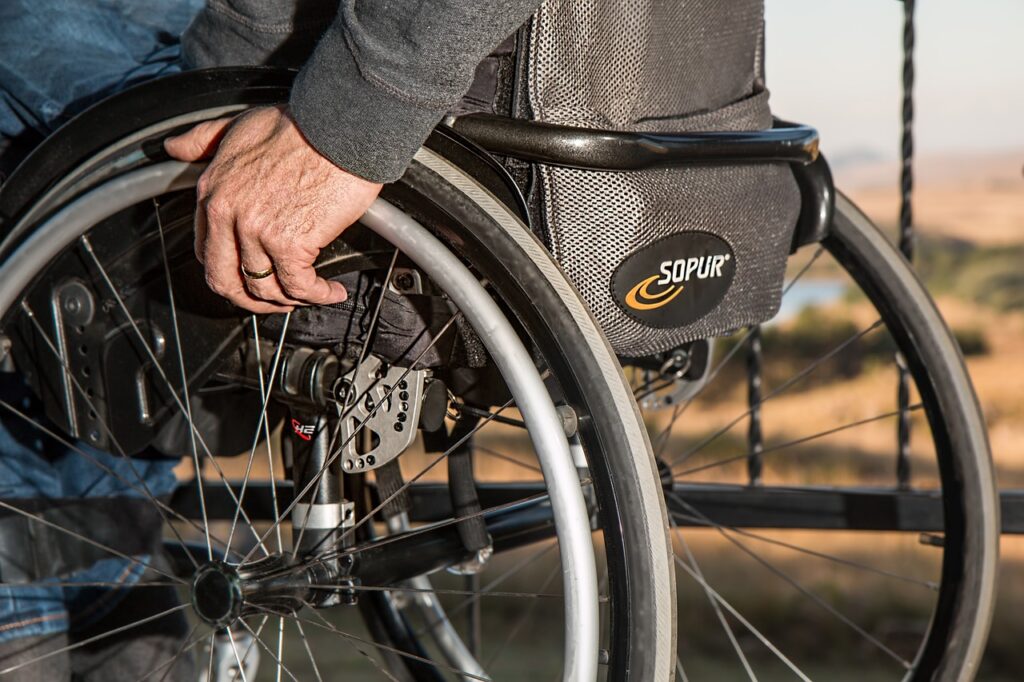Understanding Handicap Parking Laws in New York

Handicap parking laws play a crucial role in ensuring accessibility and equal rights for individuals with disabilities across New York State. These laws govern the allocation, enforcement, and use of designated handicap parking spaces, aiming to provide accessible parking options for those who need them most. In this blog, we’re exploring the handicap parking laws in New York, including permit requirements, ADA compliance, fines, and signage requirements, to help you better understand your rights and responsibilities.
New York Handicap Parking Regulations:
New York State has specific regulations in place to govern handicap parking spaces, outlined in the New York Vehicle and Traffic Law (VTL) and the New York City Traffic Rules. These regulations mandate the reservation of parking spaces for individuals with disabilities in various locations, including public streets, parking lots, and garages.
Handicap Parking Laws in NY:
Handicap parking laws in New York State are designed to ensure that individuals with disabilities have equal access to parking facilities. According to state law, it is illegal for any vehicle to park in a designated handicap parking space without the proper permit or authorization. Violators may be subject to fines and penalties as outlined by state and local regulations.
Disability Parking Rules in New York:
Disability parking rules in New York govern eligibility criteria and the issuance of handicap parking permits.
To qualify for a permit, individuals must have a qualifying disability, as certified by a licensed medical professional.
Permits are issued by the New York State Department of Motor Vehicles (DMV) and must be displayed properly when using designated handicap parking spaces.
Temporary permits are available for temporary disabilities, while permanent permits are issued for long-term disabilities. Understanding these rules is crucial for individuals with disabilities to access the necessary parking accommodations and ensure compliance with state regulations.
Understanding ADA Parking Regulations in NY:
The Americans with Disabilities Act (ADA) sets forth federal regulations to ensure accessibility for individuals with disabilities, including requirements for parking facilities. In New York, ADA parking regulations complement state laws and require that parking spaces designated for individuals with disabilities meet specific criteria for size, signage, and accessibility features.
Handicap Parking Permit Requirements NY:
To obtain a handicap parking permit in New York, individuals must submit an application to the DMV along with documentation from a licensed medical professional certifying their disability. Permits are issued on a temporary or permanent basis, depending on the individual’s medical condition and mobility needs.
Accessible Parking Laws in New York State:
New York State has comprehensive accessible parking laws to ensure that individuals with disabilities have equal access to parking facilities. These laws govern the allocation, enforcement, and use of handicap parking spaces, as well as the issuance and display of handicap parking permits.

NY Handicap Parking Fines:
Violating handicap parking laws in New York can result in substantial fines and penalties. The fines for illegally parking in a handicap parking space vary depending on the jurisdiction and the severity of the violation.
Generally, fines range from $50 to $250. Repeat offenders may face higher fines and additional penalties, such as vehicle towing or license suspension. It is crucial for motorists to understand and respect handicap parking regulations to avoid costly fines and ensure accessibility for individuals with disabilities.
Enforcement of these fines helps deter unauthorized parking and maintains the integrity of handicap parking spaces for those who truly need them.
ADA Compliance for Parking in New York:
In New York, parking facilities must comply with the Americans with Disabilities Act (ADA) to ensure accessibility for individuals with disabilities. ADA compliance includes specific requirements for handicap parking spaces, such as their number, size, and accessibility features. For example, parking lots with 1 to 25 spaces must have at least one handicap-accessible space, and this number increases based on the total number of spaces in the lot.
ADA regulations also mandate that handicap parking spaces be of adequate size and located near accessible entrances. Access aisles adjacent to these spaces must also be kept clear to allow for wheelchair access. Furthermore, signage indicating handicap parking spaces must comply with ADA standards, ensuring visibility and clarity.
By adhering to ADA regulations, parking facilities in New York can provide accessible parking options that meet the needs of individuals with disabilities, promoting inclusivity and equal access to public spaces.
Handicap Parking Signage Requirements NY:
Handicap parking spaces in New York must have signage that complies with state and federal requirements. These signs should prominently display the international symbol of accessibility and indicate that the space is reserved for individuals with disabilities.
Access aisles adjacent to handicap parking spaces must also be marked to prevent obstruction. Proper signage ensures that handicap parking spaces are easily identifiable and helps prevent misuse by unauthorized vehicles.
Failure to comply with signage requirements may result in fines and penalties, highlighting the importance of adhering to these regulations to ensure accessibility for individuals with disabilities.
New York City Disability Parking Laws:
In New York City, disability parking laws are enforced by the Department of Transportation (DOT) and the NYPD.
These laws govern the allocation and use of handicap parking spaces on public streets and sidewalks, as well as in municipal parking lots and garages. Violators may be subject to fines and penalties as outlined by city regulations.
***
Understanding handicap parking laws in New York is essential for ensuring accessibility and equal rights for individuals with disabilities. By following state and federal regulations, parking facilities can provide accessible parking options that meet the needs of all users.
When we all promote compliance and enforcement, we create communities that are inclusive, accessible, and welcoming to individuals of all abilities.
Need more information on disabled parking in the US? From handicap parking for electric vehicles in Oregon to accessible parking at the Mayo Clinic in Minnesota, we offer a useful bank of detailed topics on the Dr Handicap blog. Check it out today!
Image by Jo Wiggijo from Pixabay.